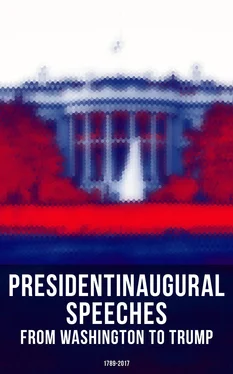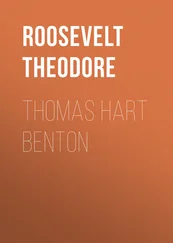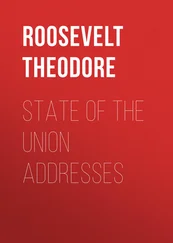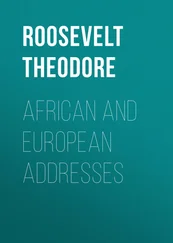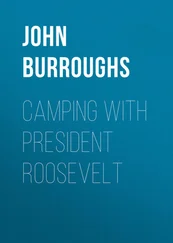This unexceptionable course could not avail against the injustice and violence of the belligerent powers. In their rage against each other, or impelled by more direct motives, principles of retaliation have been introduced equally contrary to universal reason and acknowledged law. How long their arbitrary edicts will be continued in spite of the demonstrations that not even a pretext for them has been given by the United States, and of the fair and liberal attempt to induce a revocation of them, can not be anticipated. Assuring myself that under every vicissitude the determined spirit and united councils of the nation will be safeguards to its honor and its essential interests, I repair to the post assigned me with no other discouragement than what springs from my own inadequacy to its high duties. If I do not sink under the weight of this deep conviction it is because I find some support in a consciousness of the purposes and a confidence in the principles which I bring with me into this arduous service.
To cherish peace and friendly intercourse with all nations having correspondent dispositions; to maintain sincere neutrality toward belligerent nations; to prefer in all cases amicable discussion and reasonable accommodation of differences to a decision of them by an appeal to arms; to exclude foreign intrigues and foreign partialities, so degrading to all countries and so baneful to free ones; to foster a spirit of independence too just to invade the rights of others, too proud to surrender our own, too liberal to indulge unworthy prejudices ourselves and too elevated not to look down upon them in others; to hold the union of the States as the basis of their peace and happiness; to support the Constitution, which is the cement of the Union, as well in its limitations as in its authorities; to respect the rights and authorities reserved to the States and to the people as equally incorporated with and essential to the success of the general system; to avoid the slightest interference with the right of conscience or the functions of religion, so wisely exempted from civil jurisdiction; to preserve in their full energy the other salutary provisions in behalf of private and personal rights, and of the freedom of the press; to observe economy in public expenditures; to liberate the public resources by an honorable discharge of the public debts; to keep within the requisite limits a standing military force, always remembering that an armed and trained militia is the firmest bulwark of republics—that without standing armies their liberty can never be in danger, nor with large ones safe; to promote by authorized means improvements friendly to agriculture, to manufactures, and to external as well as internal commerce; to favor in like manner the advancement of science and the diffusion of information as the best aliment to true liberty; to carry on the benevolent plans which have been so meritoriously applied to the conversion of our aboriginal neighbors from the degradation and wretchedness of savage life to a participation of the improvements of which the human mind and manners are susceptible in a civilized state—as far as sentiments and intentions such as these can aid the fulfillment of my duty, they will be a resource which can not fail me.
It is my good fortune, moreover, to have the path in which I am to tread lighted by examples of illustrious services successfully rendered in the most trying difficulties by those who have marched before me. Of those of my immediate predecessor it might least become me here to speak. I may, however, be pardoned for not suppressing the sympathy with which my heart is full in the rich reward he enjoys in the benedictions of a beloved country, gratefully bestowed or exalted talents zealously devoted through a long career to the advancement of its highest interest and happiness.
But the source to which I look or the aids which alone can supply my deficiencies is in the well-tried intelligence and virtue of my fellow-citizens, and in the counsels of those representing them in the other departments associated in the care of the national interests. In these my confidence will under every difficulty be best placed, next to that which we have all been encouraged to feel in the guardianship and guidance of that Almighty Being whose power regulates the destiny of nations, whose blessings have been so conspicuously dispensed to this rising Republic, and to whom we are bound to address our devout gratitude for the past, as well as our fervent supplications and best hopes for the future.
(March 4, 1813)
Table of Contents
About to add the solemnity of an oath to the obligations imposed by a second call to the station in which my country heretofore placed me, I find in the presence of this respectable assembly an opportunity of publicly repeating my profound sense of so distinguished a confidence and of the responsibility united with it. The impressions on me are strengthened by such an evidence that my faithful endeavors to discharge my arduous duties have been favorably estimated, and by a consideration of the momentous period at which the trust has been renewed. From the weight and magnitude now belonging to it I should be compelled to shrink if I had less reliance on the support of an enlightened and generous people, and felt less deeply a conviction that the war with a powerful nation, which forms so prominent a feature in our situation, is stamped with that justice which invites the smiles of Heaven on the means of conducting it to a successful termination.
May we not cherish this sentiment without presumption when we reflect on the characters by which this war is distinguished?
It was not declared on the part of the United States until it had been long made on them, in reality though not in name; until arguments and postulations had been exhausted; until a positive declaration had been received that the wrongs provoking it would not be discontinued; nor until this last appeal could no longer be delayed without breaking down the spirit of the nation, destroying all confidence in itself and in its political institutions, and either perpetuating a state of disgraceful suffering or regaining by more costly sacrifices and more severe struggles our lost rank and respect among independent powers.
On the issue of the war are staked our national sovereignty on the high seas and the security of an important class of citizens, whose occupations give the proper value to those of every other class. Not to contend for such a stake is to surrender our equality with other powers on the element common to all and to violate the sacred title which every member of the society has to its protection. I need not call into view the unlawfulness of the practice by which our mariners are forced at the will of every cruising officer from their own vessels into foreign ones, nor paint the outrages inseparable from it. The proofs are in the records of each successive Administration of our Government, and the cruel sufferings of that portion of the American people have found their way to every bosom not dead to the sympathies of human nature.
As the war was just in its origin and necessary and noble in its objects, we can reflect with a proud satisfaction that in carrying it on no principle of justice or honor, no usage of civilized nations, no precept of courtesy or humanity, have been infringed. The war has been waged on our part with scrupulous regard to all these obligations, and in a spirit of liberality which was never surpassed.
How little has been the effect of this example on the conduct of the enemy!
They have retained as prisoners of war citizens of the United States not liable to be so considered under the usages of war.
They have refused to consider as prisoners of war, and threatened to punish as traitors and deserters, persons emigrating without restraint to the United States, incorporated by naturalization into our political family, and fighting under the authority of their adopted country in open and honorable war for the maintenance of its rights and safety. Such is the avowed purpose of a Government which is in the practice of naturalizing by thousands citizens of other countries, and not only of permitting but compelling them to fight its battles against their native country.
Читать дальше
